Health Care > EXAM > HESI MED SURG V1 EXIT EXAM LATEST UPDATED TEST BANK (All)
HESI MED SURG V1 EXIT EXAM LATEST UPDATED TEST BANK
Document Content and Description Below
HESI MED SURG V1 EXIT EXAM LATEST UPDATED TEST BANK.Chapter 1 A Brief History of Microbiology 1.1 Multiple Choice Questions 1) Antoni van Leeuwenhoek was the first person in history to A) use ... a magnifying glass. B) develop a taxonomic system. C) view microorganisms and record these observations. D) disprove spontaneous generation. E) use the germ theory of disease. Answer: C Bloom's Taxonomy: Knowledge Section: The Early Years of Microbiology Learning Outcome: 1.1 2) Which of the following microbes are likely to be the swiftly moving "animalcules" observed by Leeuwenhoek in pond water? A) fungi B) protozoa C) algae D) viruses E) fungi and algae Answer: B Bloom's Taxonomy: Comprehension Section: The Early Years of Microbiology Learning Outcome: 1.2 3) Which of the following statements about fungi is INCORRECT? A) Fungi are eukaryotes. B) Molds are multicellular. C) Fungi have a cell wall. D) Fungi are photosynthetic. E) Yeasts are unicellular. Answer: D Bloom's Taxonomy: Comprehension Section: The Golden Age of Microbiology Learning Outcome: 1.3 4) Which of the following is an accurate description of viruses? A) They are visible with a light microscope. B) They are the smallest known cells. C) They are composed of protein only. D) They are typically about the size of prokaryotic cells. E) They are acellular obligatory parasites. Answer: E Bloom's Taxonomy: Comprehension Section: The Early Years of Microbiology Learning Outcome: 1.3 5) Which of the following is an INCORRECT pairing? A) protozoa; multicellular B) fungi; cell walls C) algae; aquatic and marine habitats D) prokaryotes; no nuclei E) viruses; acellular parasites Answer: A Bloom's Taxonomy: Comprehension Section: The Early Years of Microbiology Learning Outcome: 1.3 6) A tiny (less than 2 micrometers) new organism is discovered living in a boiling hot "mud pot" (a type of mud spring). It is most likely a member of the A) algae. B) archaea. C) fungi. D) protozoa. E) viruses. Answer: B Bloom's Taxonomy: Analysis Section: The Early Years of Microbiology Learning Outcome: 1.4 7) Parasitic worms, even meters-long tapeworms, are studied in microbiology because A) they are parasites. B) diagnosis usually involves microscopic examination of patient samples. C) the Gram stain can be used to identify them. D) Leeuwenhoek first discovered them. E) no one else wants to study them. Answer: B Bloom's Taxonomy: Comprehension Section: The Early Years of Microbiology Learning Outcome: 1.4 [Show More]
Last updated: 2 years ago
Preview 1 out of 18 pages
.png)
Buy this document to get the full access instantly
Instant Download Access after purchase
Buy NowInstant download
We Accept:

Reviews( 0 )
$15.00
Can't find what you want? Try our AI powered Search
Document information
Connected school, study & course
About the document
Uploaded On
Nov 09, 2022
Number of pages
18
Written in
Additional information
This document has been written for:
Uploaded
Nov 09, 2022
Downloads
0
Views
69


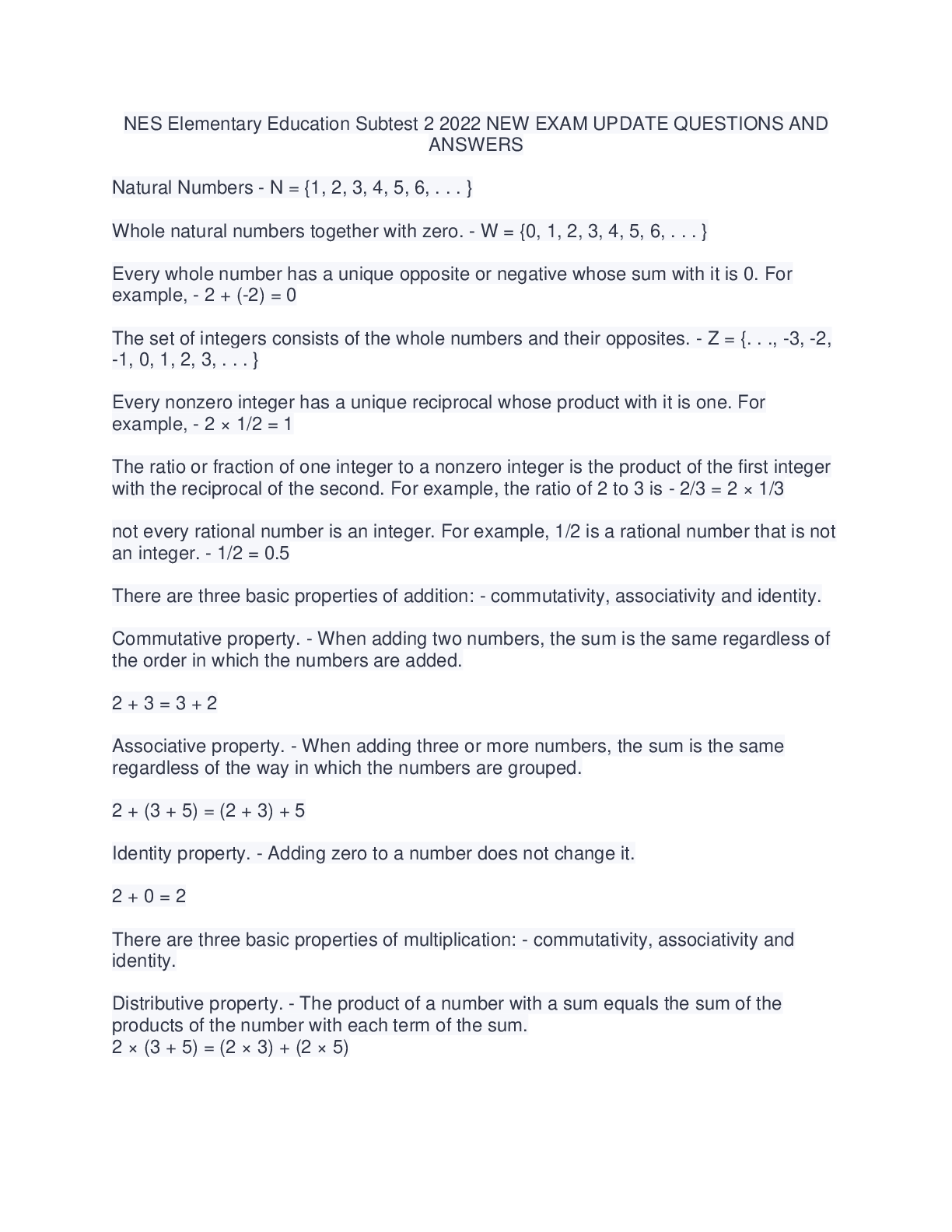
.png)

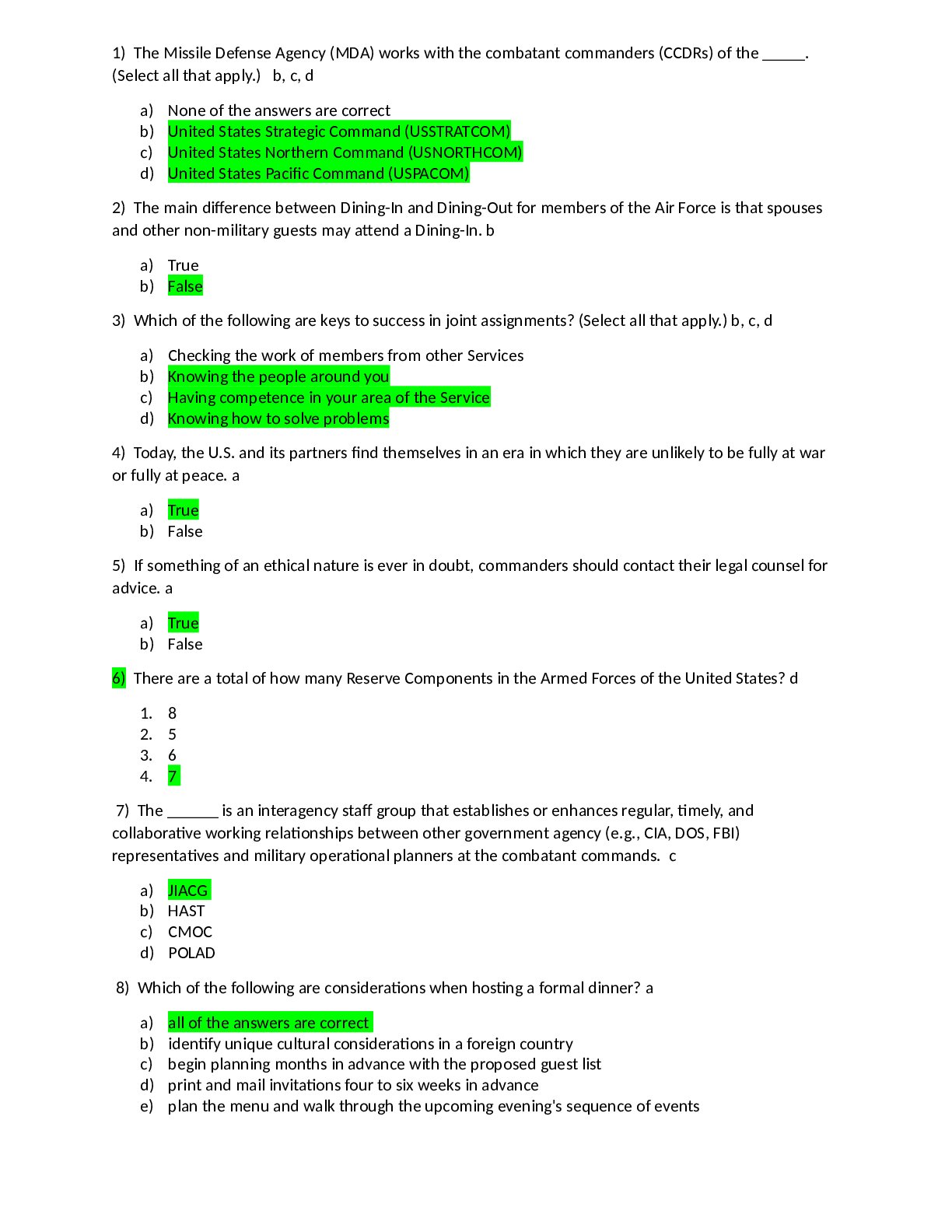
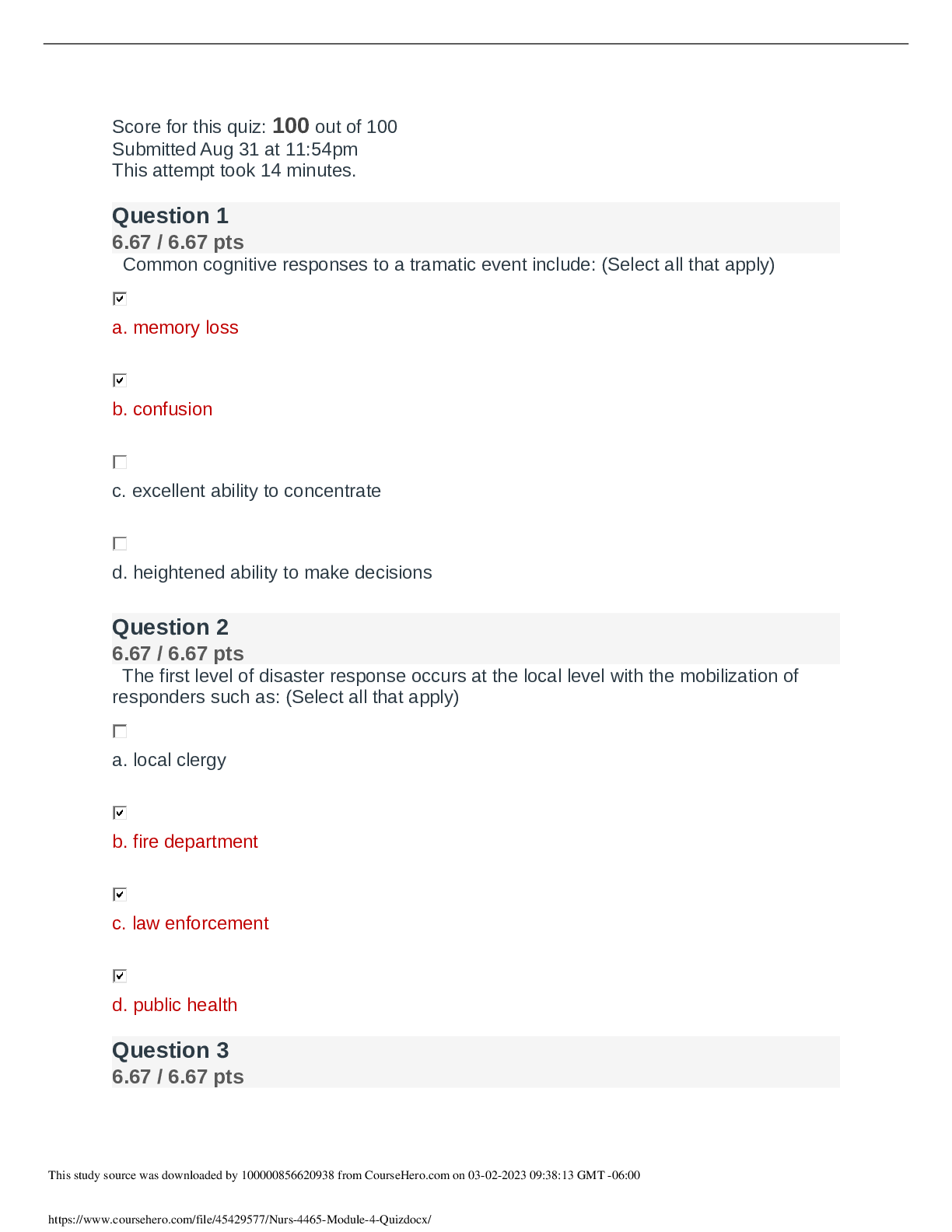
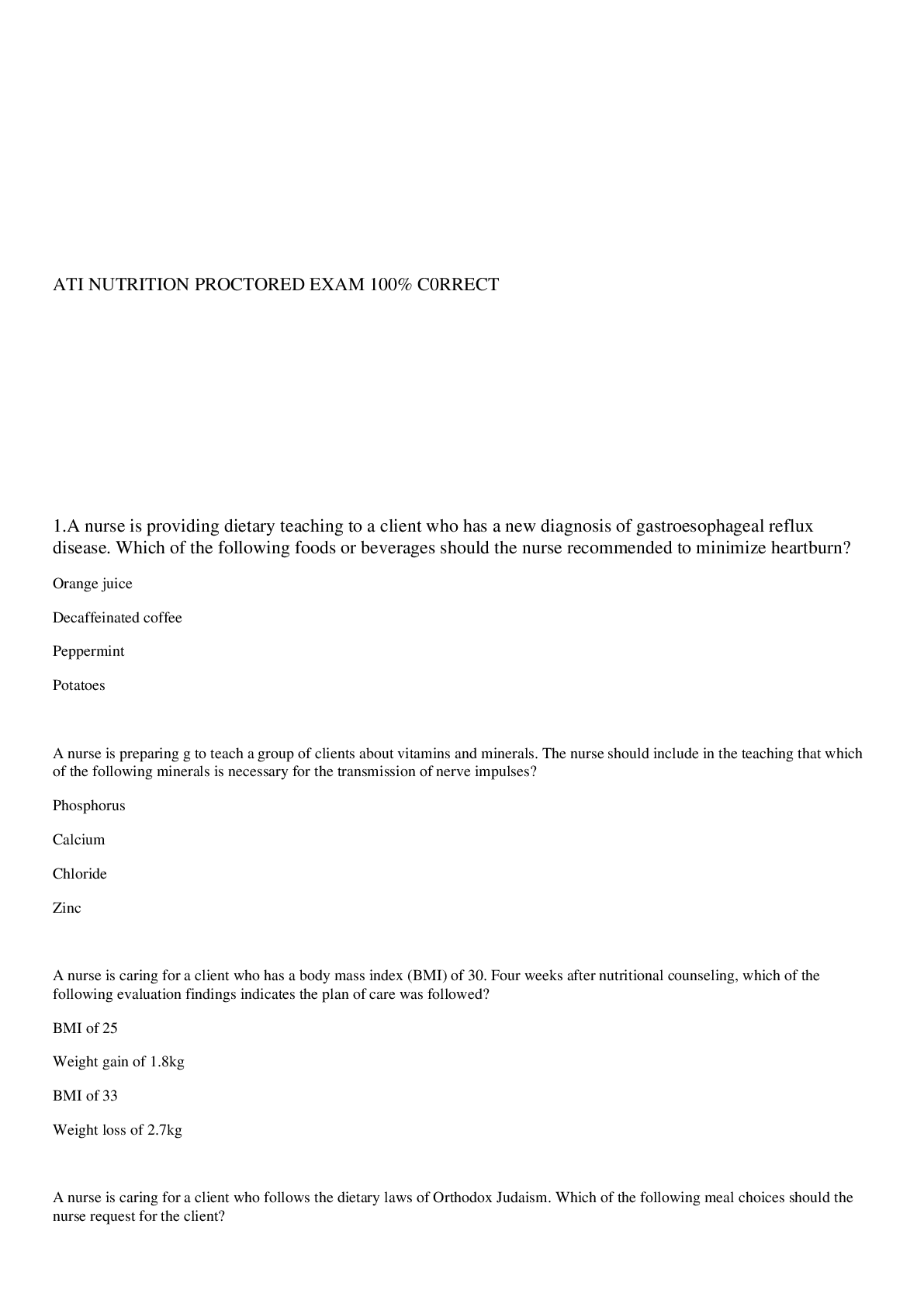
.png)
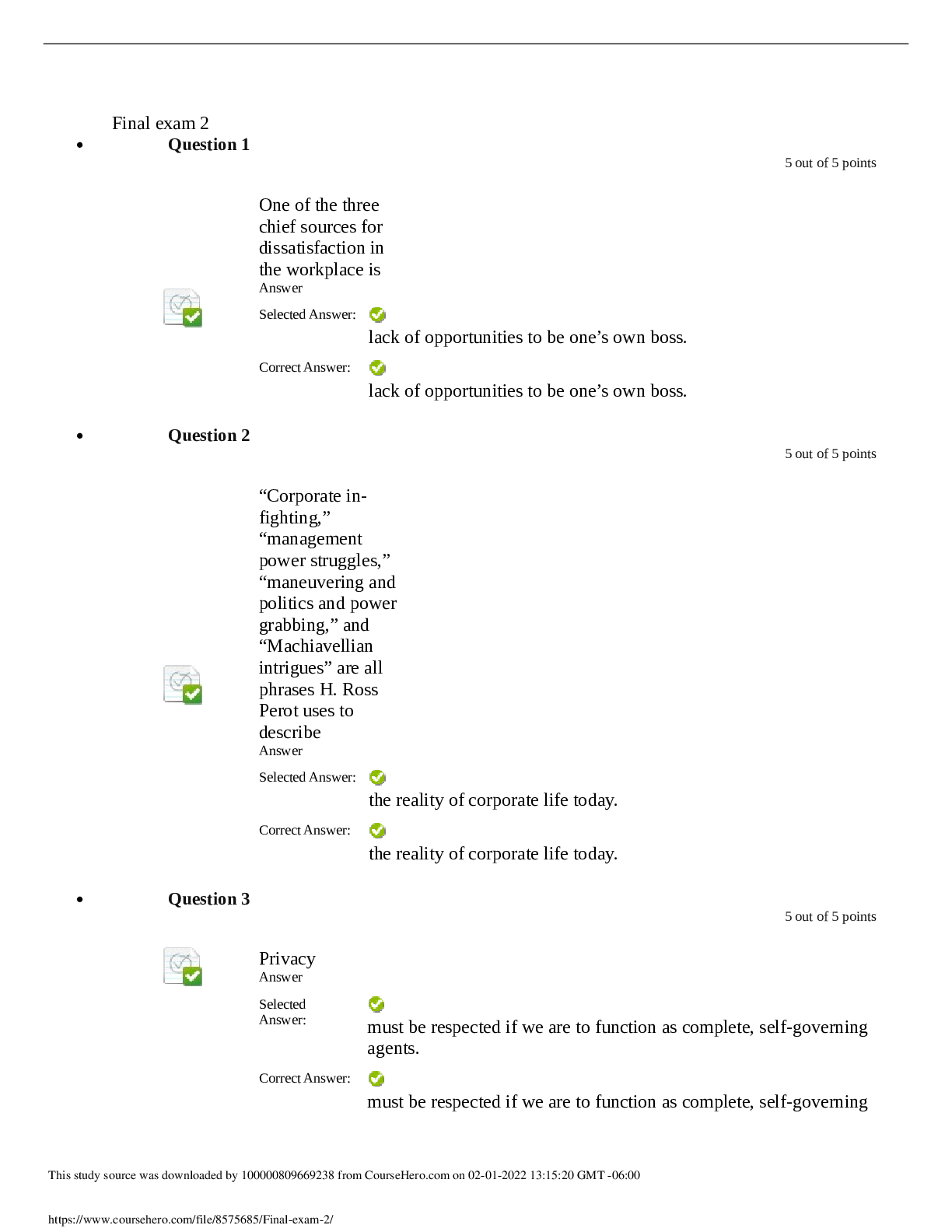
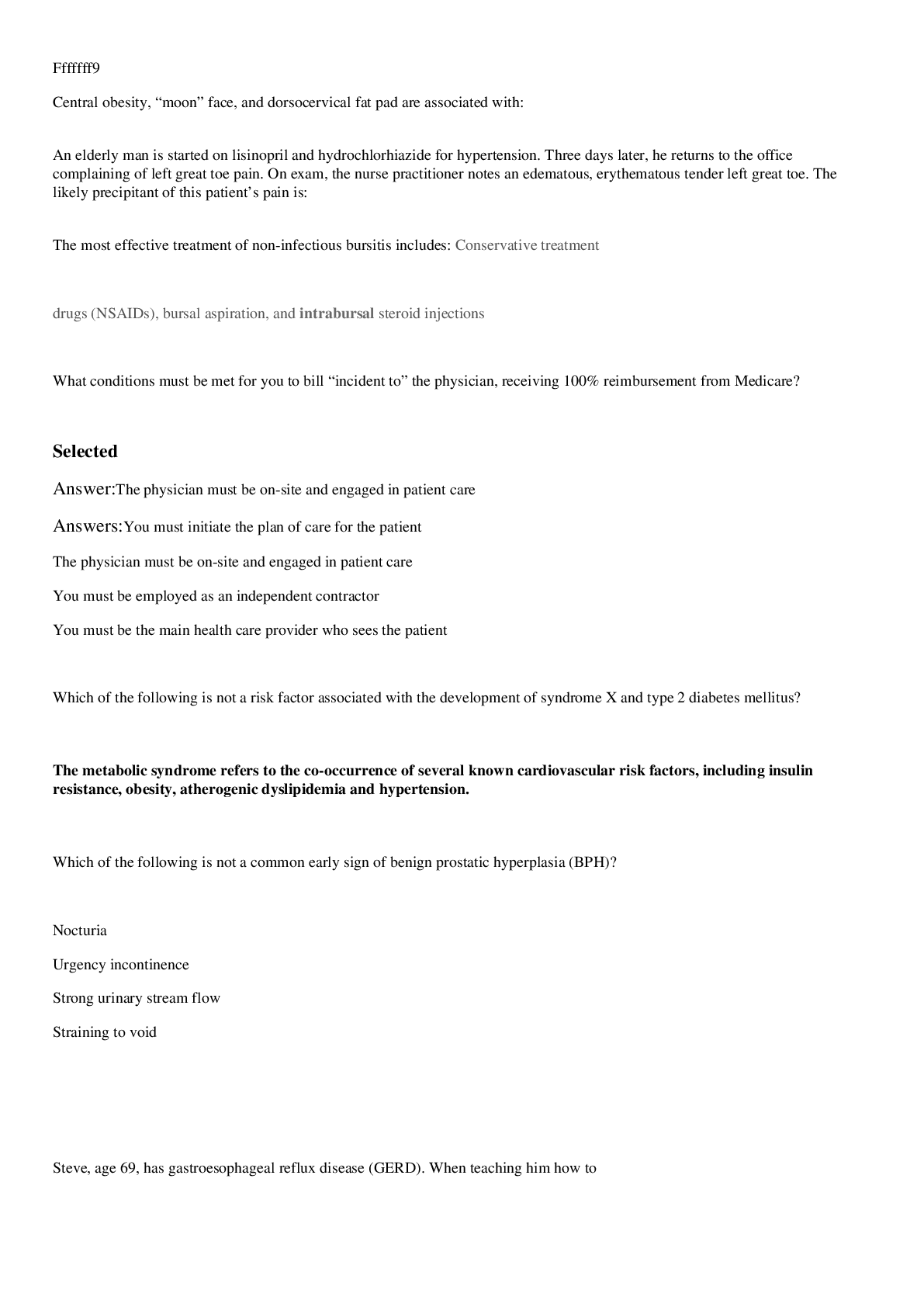
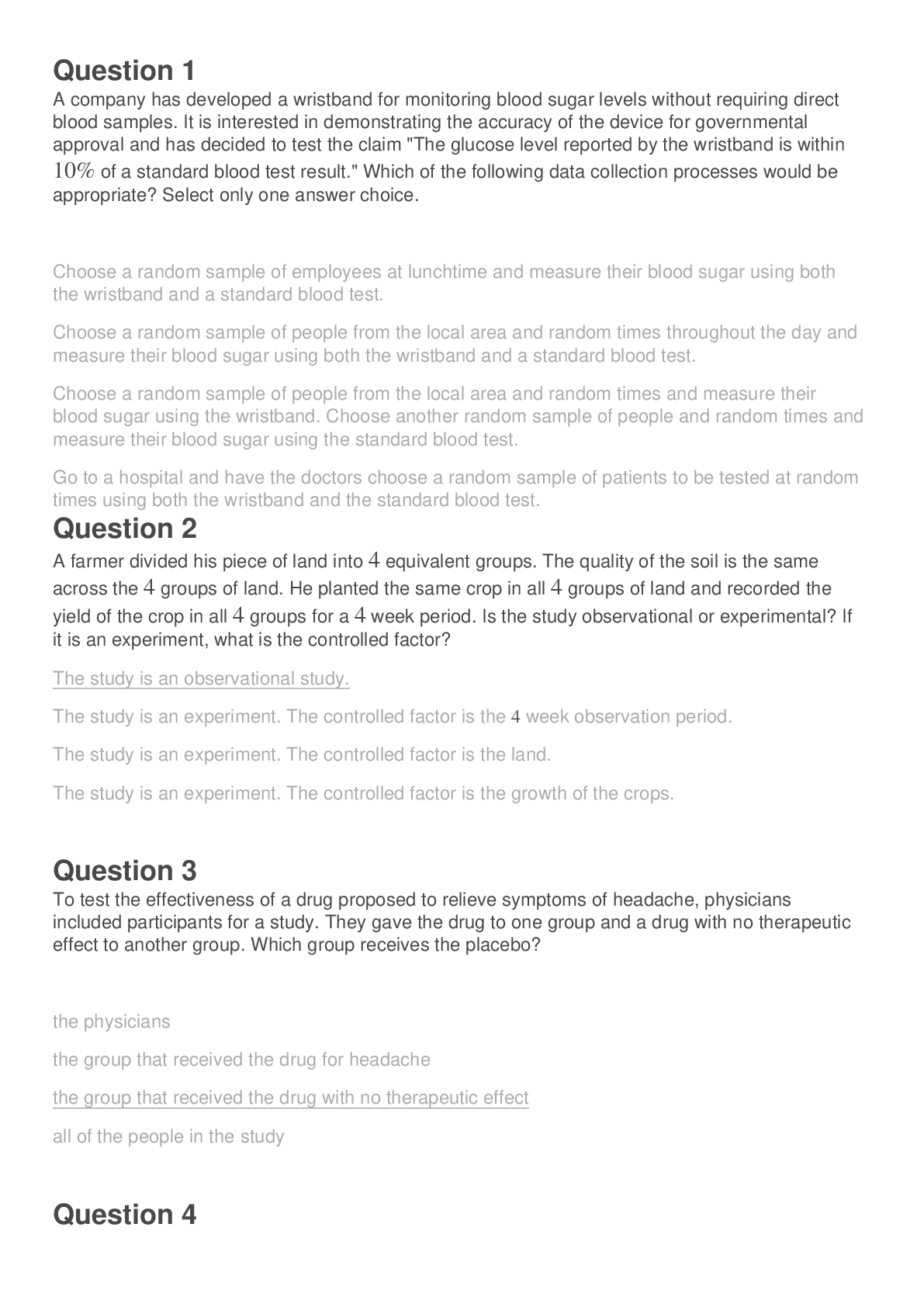
.png)
.png)


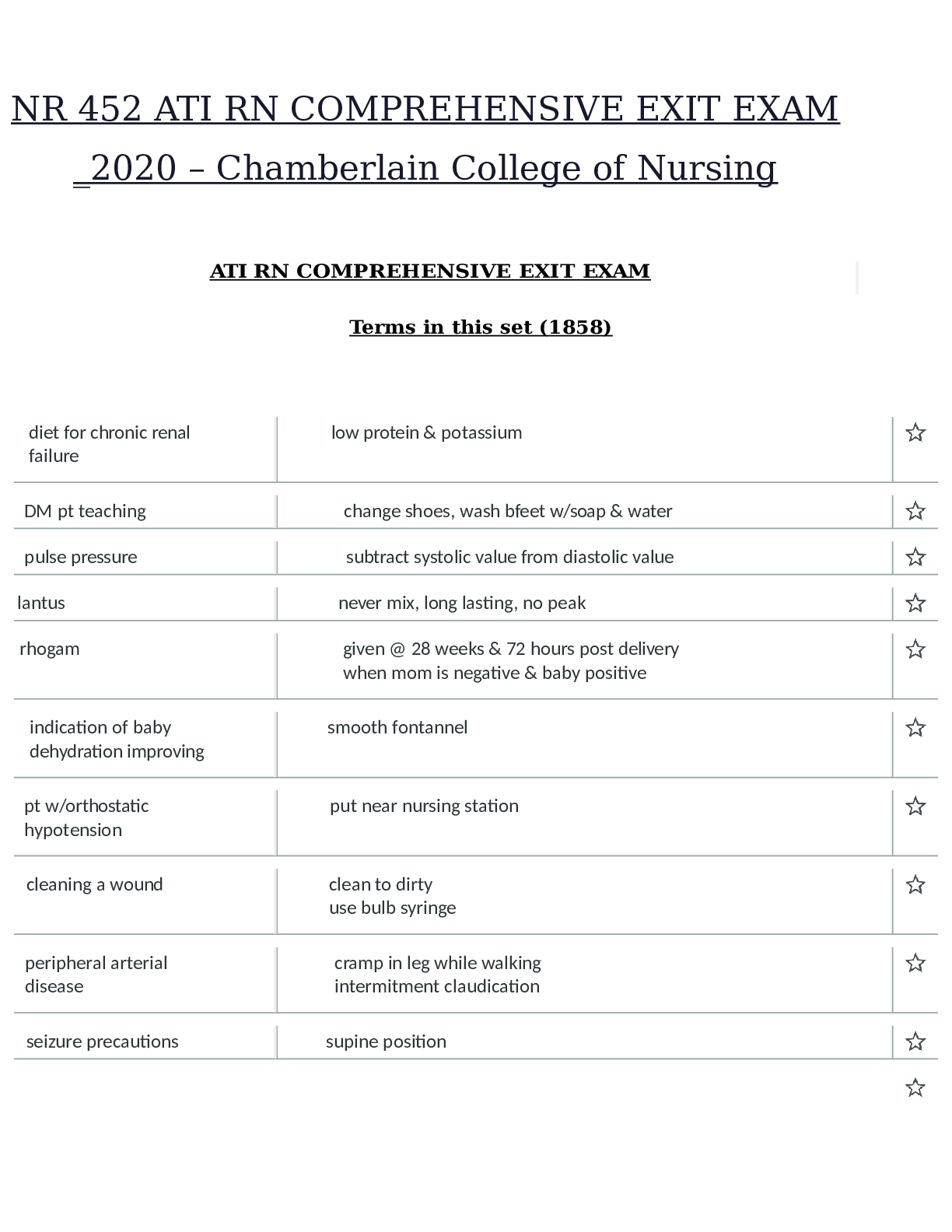
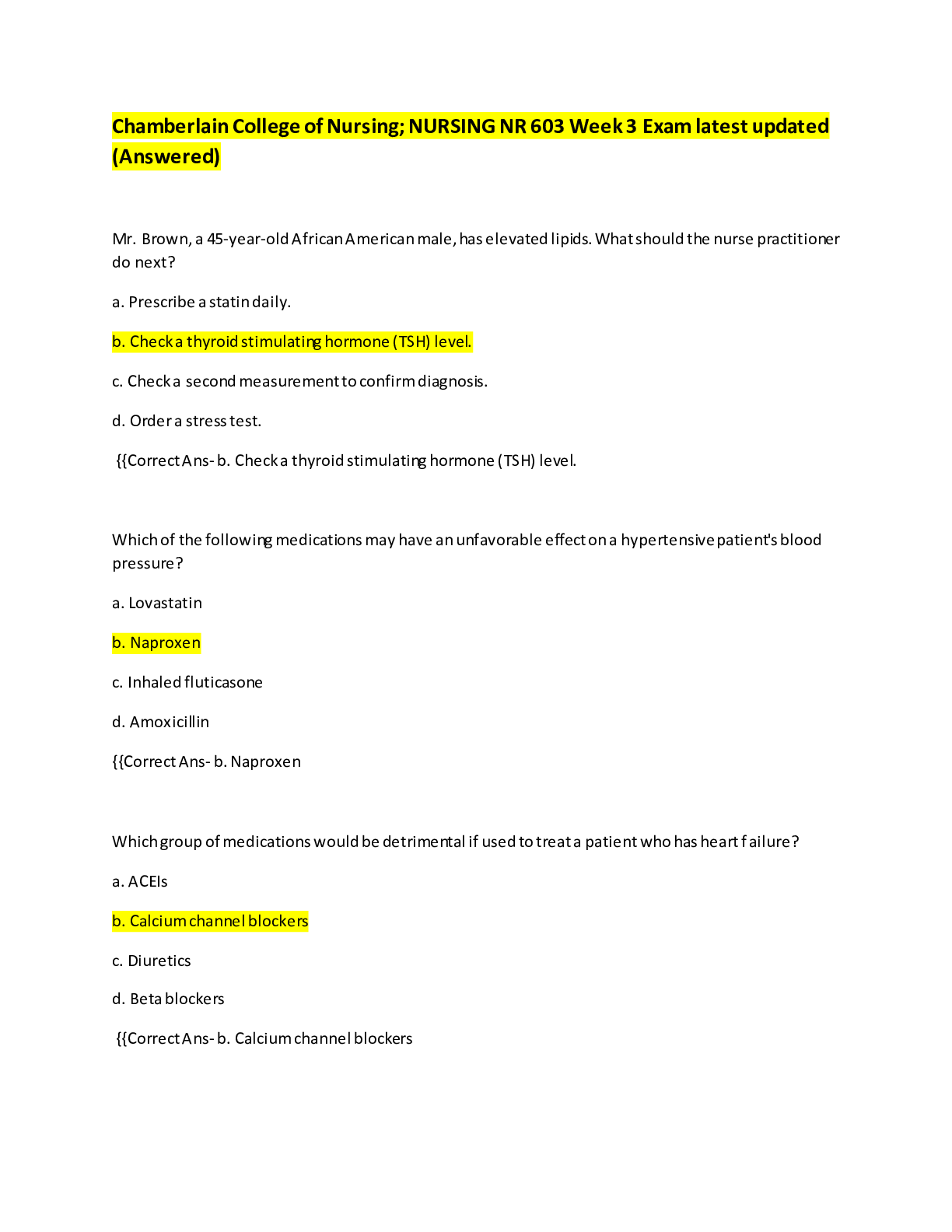




.png)

